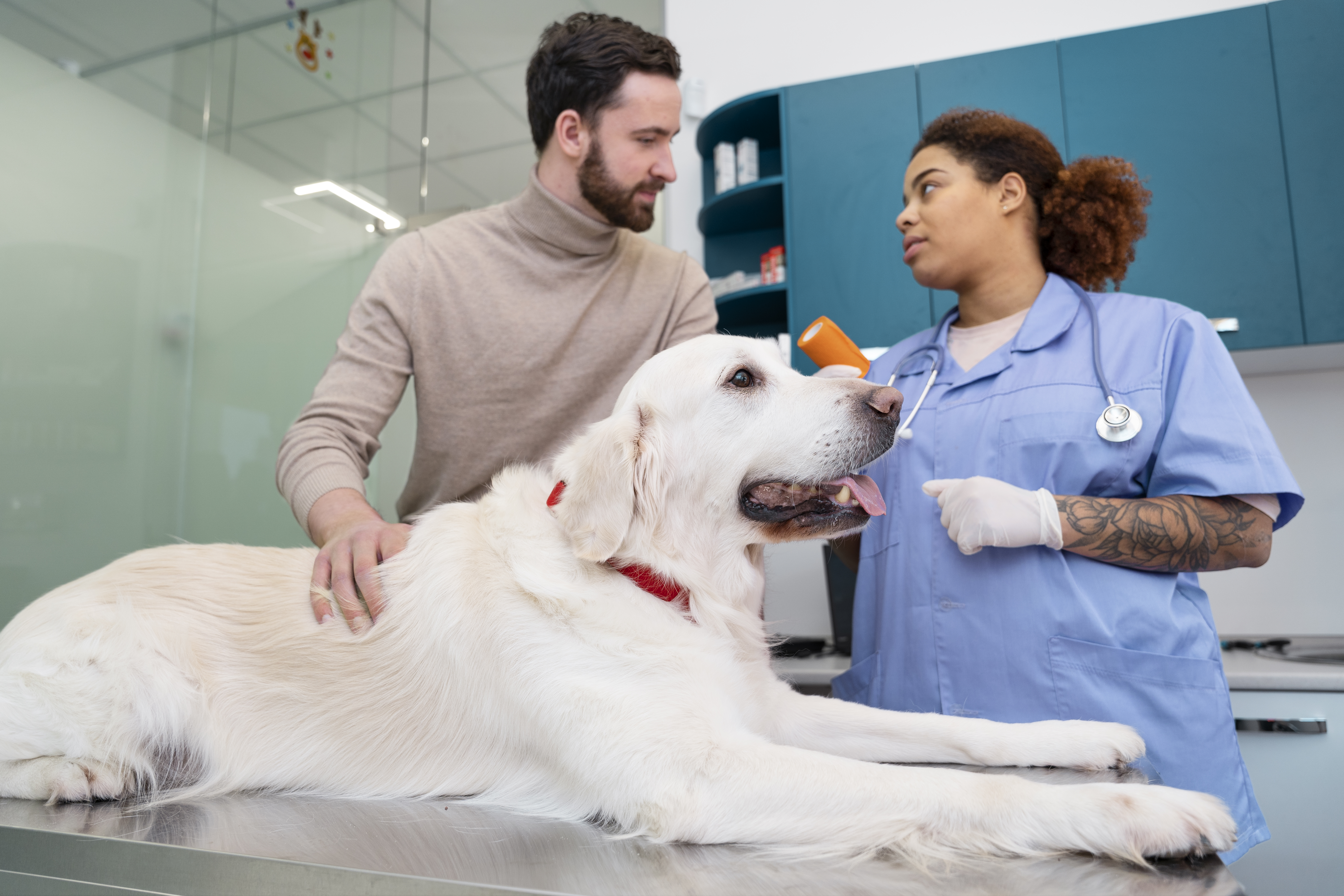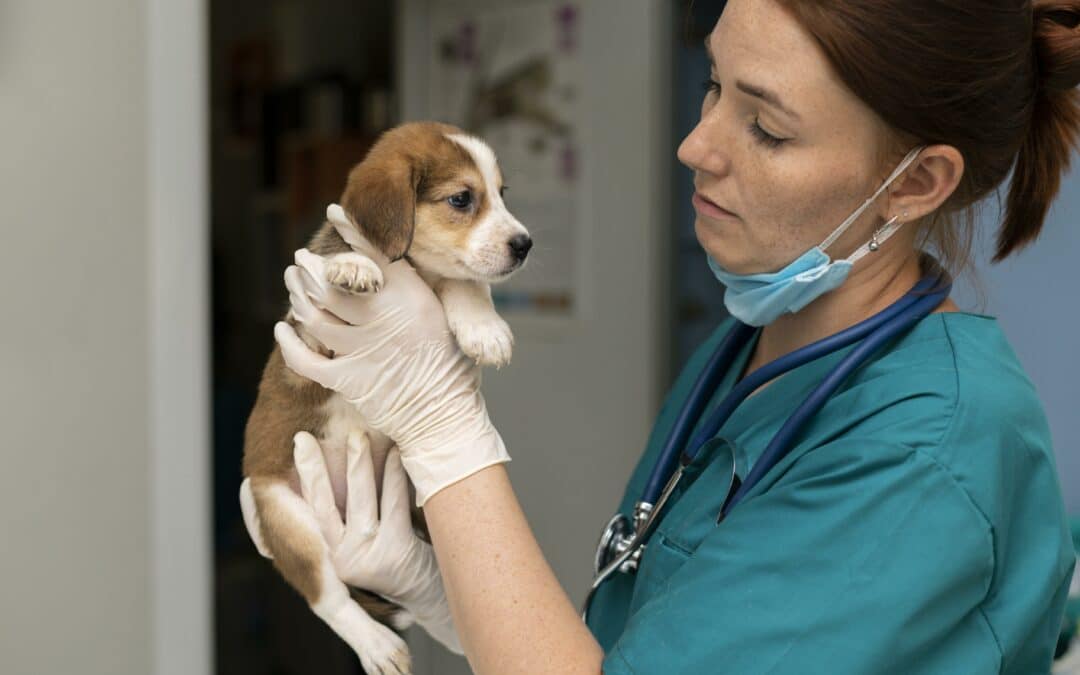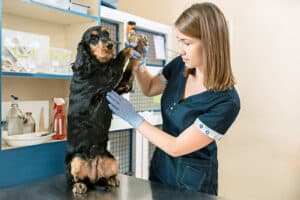We love our furry friends, and we always want the best for them. When taking your dog out for a walk, or bringing them with you on a camping trip or vacation, you may notice them shivering and shaking. What are the common reasons for a shaking or shivering dog, and what can I do about it?
The most common reasons your dog might be shivering or shaking are excitement, cold, stress, anxiety, pain or illness, attention seeking, and old age. However, it’s important to recognize the difference between the typical shakes, and signs of a seizure.
The only way to properly diagnose your dog’s shaking or shivering is to contact your local veterinarian with your concerns.

Reasons Why Your Dog is Shaking
Table of Contents
Excitement
Why do dogs shake? Most dogs shiver or shake when they’re happy, overstimulated, or excited. The actual cause is debated, but the going theory is the “shakes” are an outward manifestation of your dog’s intense emotions. This type of shivering isn’t dangerous, and can even be cute—this behavior will also stop once your dog calms down.
Stress and Anxiety
What do I do if my dog is shaking and acting scared? Sometimes, unwanted intense emotions can cause shivers. Fear and anxiety can bring on shakes, and while these manifestations aren’t inherently harmful, stress is just as bad for your dog as it is for you.
Do your best to reassure your dog and remove the source of stress or remove them from the source of stress. If your dog is scared of thunderstorms or fireworks, for example, introduce some therapeutic toys or do your best to mask these loud noises in the quietest room of your home.
If you notice something that consistently brings out the shakes in your dog, attempt to redirect their attention. Dogs are very perceptive of their humans—when you are stressed or afraid, they will mimic your emotions. If you can remain calm and ignore an obvious stressor, your dog will learn your behavior and attempt to calm down as well.
Cold
If you’re wondering “Why is my dog shivering” it might just be the temperature. The simplest answer to the shakes and shivers is that your dog is cold. Shivering is an involuntary response, especially in our furry friends who don’t have as many ways to regulate temperature as we do. When it’s cold, the body shivers to get the blood pumping to raise body temperature and stave off hypothermia. Small dogs, such as Chihuahuas and Pomeranians, are more prone to shivering than larger breeds because of their lack of body mass and insulation.
If your dog dislikes the cold, find a way to keep their temperature up. A pup sweater, coat, or jacket can help insulate them and ease their shivers. They will also want a warm place to curl up—you can provide them with a dog bed or heating vent, or curl up with them on cold nights.
Wants Attention
No one wants to see their dog suffering. Still, if you rush to your dog’s side every time they have a little bout of the shakes, they’ll begin to think that shivering is a way to get your attention. Some dogs can learn how to manipulate shaking while begging for food, attention, or sympathy.
Pain
Shivering or shaking can signal that your dog is suffering, in pain, or has an illness. Muscle tremors might be a sign of more serious conditions, such as hypoglycemia, distemper, inflammatory brain disease, Addison’s disease, or even an upset stomach.
Constant, frequent shivering could be a sign of Generalized Tremor syndrome or Shaker syndrome, which is a chronic illness that can be helped via medication from your veterinarian. Look for signs of sickness or injury—if your dog has a chronic illness, the shivering will be accompanied by abnormal behaviors out of character for your dog. Contact your local trusted veterinarian immediately.
What To Do If Your Dog is Shaking
Why is my dog shaking? It can be frustrating when your dog is consistently shaking or shivering and you don’t know what to do for them. A trip to the vet is always a good idea, because your veterinarian can rule out health conditions and causes, and can let you know if your pet is feeling pain or anxiety. If your pup is shaking from excitement, your veterinarian might help you by suggesting an exercise regiment or changes in their environment. Fearful or over-stimulated animals might benefit from prescribed medications.
Shaking, however, can be a precursor to more serious conditions. If your dog has regular seizures, they might require veterinary services. If your pet ever loses consciousness, or you cannot get their attention while they’re shaking, or they exhibit other signs such as diarrhea, vomiting, or urination, contact your trusted veterinarian as soon as possible so that your dog can receive prompt treatment.
Contact Your Vet
Your dog’s shaking can have many causes, such as excitement, stress, temperature, attention, or chronic illness. Shivers and shaking can also belie more serious signs of illness and disease, which is why it’s important to contact a trusted local veterinarian like Paoli Vetcare if the shaking persists.
With decades of experience caring for beloved dogs and cats, Poali knows how to provide excellent treatment that improves your pet’s quality of life. Contact Paoli Vetcare today and schedule an appointment for your fur baby.








